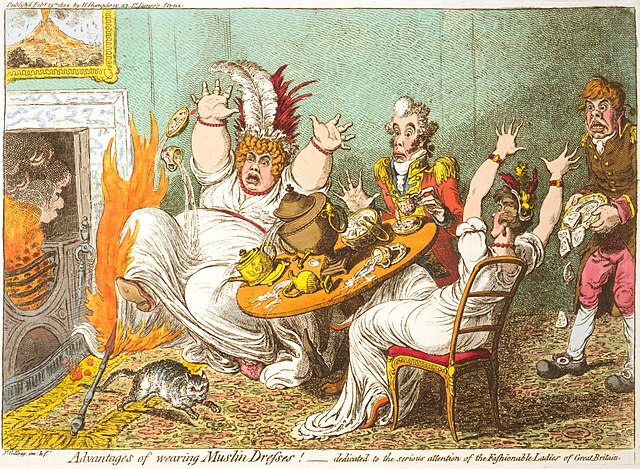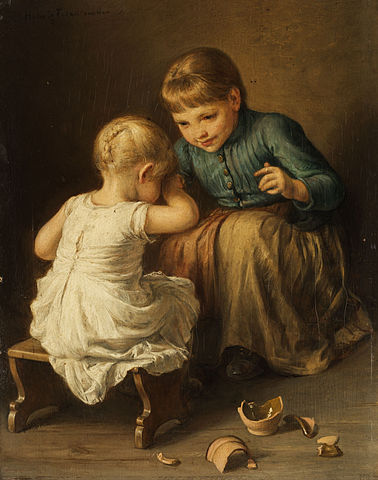
Avoiding accidents in English spelling.
A number of words provide challenges for writers of Thai English. The Thammasat University Libraries own a number of academic guides to better spelling. Some of these books can be useful, even if they do not always look like fun reading. For those who do not have the time to devote to reading books about spelling, here are a few quick hints:
Committee
This word is often written wrongly as commitee and also sometimes as committe. Less often it can be seen spelled wrong as committy. Clearly any writer of a thesis or academic article will be using a Word document with automatic spell check. Sometimes the spell check service asks annoying questions which are not important. Yet it is a good idea to always pay attention to these questions, usually in the form of red underlining, that makes a word stand out. This is your chance to double-check if you have spelled something right. After you have finished any text, it is always good to go through it using the Review tab at the top of the Word document, by clicking on Spelling & Grammar. Once again, any computer spell check program will sometimes ask you to verify words that in fact are spelled correctly. Often alternatives are suggested that are not helpful, and might even cause problems if you accepted them. Yet it is worth going through the spell check process because it can catch minor mistakes that you might otherwise overlook as a non-native writer of English. Even native speakers of English who are not professional proof-readers, some of high intellectual accomplishment, spell badly. Use every support system that is available for you when writing. If you are writing in some format that does not contain automatic spell check, as Word documents do, then you must find your own way to double-check what you have written. As suggested before, if you have any doubts about a word, a Google search will quickly tell you if you have spelled it correctly or not. Some people may genuinely be self-assured when they have to write Committee but spell it wrongly as commitee, committe, or committy. This makes it especially difficulty to prevent mistakes, when they are confident and have no doubts, even when they are plainly wrong. Yet if you take the time to tell yourself little stories about longer or more complex words, these may help you to spell them more accurately. For example, since a committee is a group of people, you can think of pairs of people like pairs of letters, since the word has two m’s, two t’s, and two e’s. These three duos make up the community of which the committee consists. If you convince yourself that these three pairs of letters must be present in any committee, then if you see such wrong spellings as commitee, committe, or comittee, they may leap out at you as obviously wrong. It is probably not a good idea to focus too much on wrong spellings, since they might stick in your mind instead of the correct ones. Instead, make sure of the right spellings, and try to find ways to persuade yourself to remember them.

Environment
This word is often spelled wrong as Enviroment. As you know, the word can mean the surroundings of something or more generally, the natural world or social setting. The second letter n is left out in Thai English because typically, speakers of Thai English leave out consonants when pronouncing English words. This is an error of speech, but even more serious when it is extended to writing words. Even if you do not think of the second letter n in the word environment, it is an essential part of the word. We will not get into the etymology of the word, which involves the French language, since getting one language correct is difficult enough. Instead, we can remember the word’s meaning, about what surrounds something. There is a common English word, environs, meaning a surrounding area or district. If tourists say they have visited Om Noi and environs, that means they have not just seen Om Noi but also the area surrounding it. So environment and environs are clearly very close in meaning. Since the word environs clearly contains a second letter n, the word environment does too.
Completely
Sometimes we can avoid spelling words wrong if we sound them out, or pronounce them to ourselves. The wrong spelling of the word completely that is sometimes seen is completly. Anyone who writes it this way is not thinking of how the word sounds. The letters ete should sound like eet or eat, just as they do in the word complete. Yet if we leave off the final e, then the result, complet, looks as if its last syllable should sound like ett or eht, not eet or eat. You would not wish to suggest that the word should be pronounced complettly, so instead of writing it completly, make sure the final e is present in completely.

Foreign
This very common word can be tricky, and is sometimes spelled wrong as foriegn. This mistake happens because of the old saying that a little learning can be a dangerous thing. This expression was made famous by the 18th century British poet Alexander Pope, who wrote:
A little learning is a dangerous thing;
Drink deep, or taste not the Pierian spring.
Pope was referring to a fountain of knowledge in Greek mythology, the Pierian Spring of Macedonia, which was supposedly a source of wisdom about the arts and sciences. Pope’s suggestion is that we should try to know a lot rather than knowing only a little. In the case of people who spell the word foreign wrongly as foriegn, they may be following a rule they learned in a bad English class at some point:
I before E, except after C
While this rule works for such words as believe and receive, it does not work in many other cases. Sometimes in English words, the letter I does precede the letter E, even after the letter C, as in the words science or sufficient. Likewise, in English words without any letter C, the letter E can be found before the letter I, as in seize, weird, foreign, and others. Words such as seize and weird are particularly difficult to get right because they have the long e sound (ee) and non-native writers of English who remember the rule I before E, except after C will naturally think of spelling them wrong as sieze and wierd. There may enough exceptions to the rule of I before E, except after C that it can be considered misleading and unhelpful, causing students to commit errors. Instead of remembering a rule which is not always right, it would be better to keep in mind the few challenging cases where spelling does not seem to be as it should be, or where most non-native writers of English have the wrong instinct about it. All you really need to remember is that words such as foreign, seize, and weird have something weird about them; they are so weird that we cannot take for granted their spelling and follow some preconceived rule. Instead, if we are alert to their weirdness, we will take the time to Google these words if we need to use them. Or if we can, simply avoid using them, choosing to write a synonym which presents no comparable spelling challenges. In this way, we can reduce the number of wrong spellings without having to memorize rules that are only sometimes correct.
Government
This basic and important word is spelled wrong many times. Some writers of Thai English clearly wish it was spelled goverment instead, but sadly this is incorrect. This may be a case of the previously mentioned habit when speaking Thai English of leaving out essential consonants, and not pronouncing every letter clearly. This is particularly true of the word government. Again, we will not use the word’s etymology to explain the problem, as this would require discussing such languages as Middle English and Old French. Modern English is challenging enough. Instead, we can look at the meaning of the word government, or a body that makes and enforces laws to control or govern a country or land and its people. A government governs, by definition. Just as the verb govern is part of government, it becomes clear that no one should leave out the final letter n in the word govern. Even if the speaker of Thai English thinks the word sounds or can be pronounced like gover, the word really is govern. So by recalling the shorter word govern, it is likelier that its letter n will be included when we write the longer word government. Or at least we can hope so.

(all images courtesy of Wikimedia Commons)
